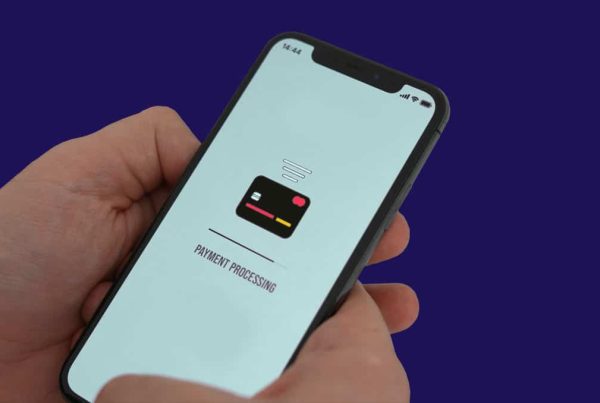What does it mean when a payment is pending?
A pending payment indicates that a payment is being processed and requires a standard wait time to complete. It may also mean that some action from the merchant is required to move the payment along.
Pending transaction example
Imagine that someone has £1,000 in their account, and they decide to purchase a £700 bicycle from an online ecommerce merchant.
In this case, the bicycle merchant would follow standard procedure and put a hold on the buyer’s account. Once done, the buyer’s bank balance would reflect the pending £700 charge, reducing the total balance to £300.
In such a scenario, even if the charge didn’t end up going through, it would reflect on the buyer’s side. The point of this system is to give buyers an accurate view of how much they have left in their accounts when making purchases.
A note of caution about pending transactions and bank balances:
Your online or mobile banking app might not reflect pending transactions in the current balance. This could potentially cause you to overdraw your account if you’re not tracking your available balance independently.
» MORE: What are Payouts? An Overview
How do pending transactions affect your bank account?
Pending transactions can temporarily freeze funds in your bank account. This is because the transaction amounts are held and not accessible for other uses.
Once a given transaction is fully processed and moves from “pending” to “posted” status, the held funds are officially transferred out of your account, or in the case of a deposit, added to your available balance.
How long should a pending payment take?
In the UK, various payment methods have their own distinct processing times.
For instance, card payments typically take 1-3 business days to process, while direct debit transactions might require 3-5 business days.
Bacs payments: A three-day journey for payment processing
Bacs payments in the UK adhere to a standard 3-day processing cycle.
Day 1: The payment file is submitted to Bacs.
Day 2: Bacs processes the payment.
Day 3: Funds are deposited into the recipient’s account.
Faster Payments’ processing time
Alternatively, businesses might opt for a service known as Faster Payments, which offers a significantly quicker processing time.
Payments through this method can be processed almost instantly or at least very quickly, typically within 2 hours, providing an excellent solution for urgent transactions.
CHAPS payment processing time
CHAPS (Clearing House Automated Payment System) in the UK is known for its same-day payment processing. Moreover, CHAPS does not impose a limit on the amount that can be transferred, making it a preferred choice for large transactions.
Financial institutions and certain businesses typically use CHAPS, and while it guarantees same-day payment, it often comes with a fee, which varies between banks.
Cash Deposits: Quick & convenient
Cash deposits in the UK are generally processed within 1 business day.
Large cash deposits may require additional verification or documentation to comply with anti-money laundering (AML) regulations and other financial guidelines.
Payment processors and wait times
The reason payment processors implement waiting periods is to mitigate financial risk. These periods, which are often referred to as settlement times, vary in duration depending on the payment processor, the merchant’s history, and the transaction details.
Merchants with a history of high chargeback ratios or fraudulent transactions are sometimes subjected to extended wait times as a precautionary measure.
Reversion of funds from a merchant
On a different note, when a merchant doesn’t finalise a transaction for whatever reason, funds typically revert to the customer’s account after a standard period of 7 days.
Certain industries, however, might have an extended reversion period, taking as long as 28 days to return the funds to the customer.
How long does it take for a cheque to clear?
According to Barclays, in the UK, most cheques clear by 23:59 the next weekday (excluding bank holidays), provided the cheque doesn’t bounce.
International payment processing times
In the UK, international payments can be made through several methods, each with its own processing time.
SWIFT Payments (Typically 1-5 business days.)
SEPA Payments (A payment in Euros within the SEPA will likely take 1-2 business days.)
Online Money Transfer Services (They take within 0-2 business days.)
Traditional Wire Transfers (These can take several business days.)
What about Faster Payments when used internationally? 🌍
Answer: While primarily a domestic service, some UK banks allow for near-instant payments internationally if the recipient bank is also part of the Faster Payments network.
Will a pending payment go through on a Saturday or Sunday?
The answer to this question depends on your bank. Many UK banks now process transactions over the weekend, but not all banks or payment systems do.
Bacs, for example, typically only processes payments on business days. So, if a bank is waiting for funds to clear through Bacs on a Friday, this might not happen until Tuesday or Wednesday.
Transactions through Faster Payments are a different story.
» MORE: Learn about Pixxles payment processing for businesses
Are pending transactions actually taken out?
No, any transaction that is pending has not been fully processed, so the funds have not been officially taken from the buyer’s account.
Here’s more detail about what happens behind the scenes when a transaction is pending ⬇️
Authorisation: The merchant requests authorisation from the customer’s bank.
Batch processing: Merchants send approved authorisations to their acquiring bank for settlement.
Clearing: The acquiring bank sends the batch transactions through the card network to request payment from the issuing bank.
Settlement: The issuing bank transfers the funds to the acquiring bank, and subsequently, the acquiring bank deposits the approved funds into the merchant’s account.
» MORE: How does credit card processing work?
Can a pending payment be cancelled by the customer?
Generally, yes.
Customers have the right to cancel a payment before it is processed, which is applicable to both one-off and regular payments.
Exceptions to this rule do exist, however, such as for the purchase of goods and services in a shop or when paying a hotel bill. Likewise, if you stop payments related to a loan or membership, you’re still obligated to pay for the loan or service by some other means.
The ability to cancel a pending transaction often depends on the purchase stage and whether you’re dealing with the vendor or your bank. For instance, if you regret an online order, you might cancel it with the vendor before it ships.
If a transaction amount is incorrect or duplicated, contacting the vendor for correction is usually the easiest solution.
Stop pending payments and refunds
To stop a payment, you can communicate with your card issuer directly if needed. If a payment is allowed despite a cancellation request, the card provider is obligated to refund the money and cancel any subsequent interest and charges.
» MORE: 7 Chargeback Prevention Strategies for Ecommerce Merchants
Can pending transactions be declined by a bank or card issuer?
Yes, pending transactions, both pre-authorised and post-authorised, can be declined by a bank or card issuer in certain cases.
Pre-authorisation declines
During the pre-authorisation phase, the bank verifies that the account has sufficient funds and temporarily holds the purchase amount, even though the money has not yet been moved.
The transaction is essentially in a safety holding pattern, which is especially important in scenarios where the final amount may not be immediately known, like at gas stations or hotels.
When a pre-authorised transaction is declined, the card issuer or payment processing network sends an error code to the merchant’s point of sale (POS) system, providing a reason for the decline.
Declines usually happen within moments after a transaction attempt.
Post-authorisation declines
Once a transaction is approved and moves to the post-authorisation stage, declines are rare and typically involve exceptional circumstances, such as technical issues or security concerns.
Online payment declines
As for online payments, if a customer’s payment is declined, they will typically see an error message in the shopping cart or checkout page informing them that the payment could not be processed.
» MORE: Improve Ecommerce Transactions with an Easy Online Payment Solution
Pending transaction vs posted transaction
Just to reiterate:
A pending transaction in your account means you bought something, and the payment is being processed. It can also mean that some money is on its way to your account.
A posted transaction status, by contrast, means your bank has completed the payment process.
Side Note: What to Do When Your PayPal Payment is Pending
As an aside, for those who use PayPal, you might at some point encounter a pending payment and wonder what’s going on.
Pending payments with PayPal are often caused by three things—having an unverified account, trying to process an eCheque payment, or undergoing a security review.
Here are some steps to consider if your PayPal payment is frozen:
- Verify your account through PayPal’s standard process
- Check your payment method (eCheques can take several days to clear)
- Check for updates from PayPal about the transaction
- Contact the sender
- Ensure you’ve confirmed your email address with PayPal
- Contact PayPal’s support
- Wait (PayPal’s internal review can take time)
For fast and efficient payment processing, we invite you to choose Pixxles. We’re an FCA-authorised payment processor that is directly accountable to our customers and to the Regulator.
Accepting ecommerce payments with Pixxles
Choosing Pixxles as your payment processor ensures a direct, transparent, and supportive payment processing experience.
Unlike some other payment providers, Pixxles is authorised by the Financial Conduct Authority, which ensures a straightforward and accountable service.
Pixxles puts customers first 🥇
We put you first with transparent pricing and a service that is ethical and valuable. Our goal is to shield your business from fraud, help you navigate your payment challenges effectively, and foster growth for your business.
When working with you, we take the time to understand your business and proactively identify and mitigate problems that could put your business at risk. Moreover, with our own underwriting team, we expedite approval processes, so once you’re approved, you’re set to go.
Our support is available when and how you need it, and we aim to resolve issues as quickly as possible.
Ready to embark on a journey towards seamless payment processing with Pixxles? Contact us to get started.
» MORE: Learn how Pixxles’ risk management system helps protect you








